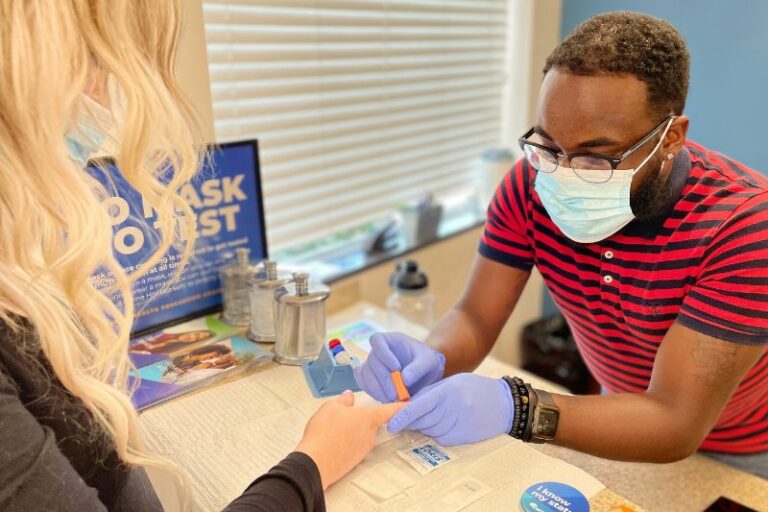Sexual health is about how you see yourself as a sexual being, your ability to enjoy your sexuality and your sense of truly owning your sexual actions and choices. Good sexual health is about more than practicing safe sex, but that’s a good place to start.
ways to keep yourself safe
Use a condom every time.
Even in a committed relationship, it is important to use a condom every time you have sex to prevent the spread of sexually transmitted infections (STIs). An external condom can be used to cover the penis or an internal condom can be inserted into the anus or vagina. Store your condoms in a cool, dry place and make sure they are properly lubricated with water-based lubricant for latex. Silicone-based lubricant is safe for either type of condom and, while often more expensive than water-based, less lubricant is needed because it does not dry as quickly as other types. Oil-based lubricants should not be used with latex and are not recommended for use inside the body. Condoms also make oral sex safer. Learn more condom tips.
Know your sexual risks.
Understand the connection between HIV and other STIs.
Getting another STI increases your risk for HIV and living with HIV increases your risk of getting other STIs for two main reasons:
- Many STIs compromise your skin and can create open sores or lesions. The skin is the body’s main defense mechanism against infection.
- Most STIs provoke an immune response in the form of an influx of CD4 cells (which HIV attacks) to the genitals.
Know your body.
Regularly inspect your sex organs—the penis or vagina and anus—so that you will notice any changes promptly.
Communicate.
Sexual health conservations can be awkward and uncomfortable, especially with someone you don’t know very well. But having them is the responsible choice. Your doctor needs an adequate medical history. Your partner(s) deserve your honesty—and you deserve it from them.
Be screened regularly.
You shouldn’t wait until you are experiencing symptoms of an STI to get tested. Make testing a part of your regular health maintenance routine. A sexually active person, even one in a committed relationship, should be screened every year (or more frequently if you have higher risk factors) and screened again if symptoms of an STI are present. You and your partner(s) can make a date out of it. Hold hands. Bring snacks. It’s probably cheaper than a movie.
Safer Sex Quick Tips
- BYOC (Bring your own condom).
- Determine your limits and boundaries around safer sex in advance.
- Avoid getting so drunk or high that your judgment fails you.
- Make safer sex a part of sex, not an interruption.
- Choose sex partner(s) who are partners in safer sex too.
- Be comfortable and able to talk about sex and sexual health with partner(s).
- If you find these conversations difficult, don’t feel bad; practice with a friend and remember these conversations are to help keep you and your partner safe and healthy.



